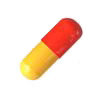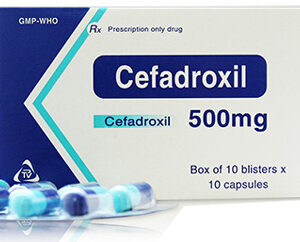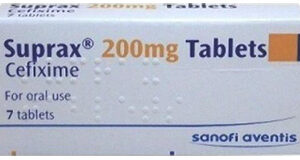Panmycin is an antibiotic drug that belongs to the tetracycline class. Its generic name is tetracycline HCl. It is commonly used to treat various bacterial infections, including respiratory tract infections, urinary tract infections, skin infections, and certain sexually transmitted diseases. Panmycin works by inhibiting the growth of bacteria, preventing them from reproducing and spreading in the body.
Panmycin is available in the form of capsules and oral suspension. It is often prescribed by healthcare professionals and should only be taken under the guidance of a qualified doctor.
Before starting Panmycin treatment, it is important to inform your healthcare provider about any existing medical conditions, allergies, or medications you are currently taking. Additionally, the drug may not be suitable for use during pregnancy or breastfeeding, so it is crucial to discuss these aspects with your doctor before initiating treatment.
Important Precautions
Panmycin should not be taken if you have a known allergy to tetracycline antibiotics or any of the components of the medication. Allergic reactions to this drug can be severe and may even be life-threatening. If you experience symptoms such as rash, itching, swelling, dizziness, or difficulty breathing after taking Panmycin, seek immediate medical attention.
It is also important to be cautious when taking Panmycin if you have certain medical conditions, including kidney or liver disease, pancreatitis, or systemic lupus erythematosus. The drug may worsen these conditions or interact with other medications you are taking for them. Consult your doctor to determine if Panmycin is safe for you.
Panmycin should not be used in children under 8 years old. The drug can cause permanent discoloration of teeth and affect bone growth in young children.
Panmycin and Your Health
As with any medication, Panmycin can cause various side effects. Common side effects include nausea, vomiting, diarrhea, stomach pain, loss of appetite, and headache. These side effects are usually mild and go away on their own. However, if they persist or worsen, consult your doctor.
Less common but more serious side effects may occur. These can include severe stomach or abdominal pain, persistent nausea or vomiting, yellowing of the skin or eyes, dark urine, unusual bleeding or bruising, and signs of a new infection. If you experience any of these symptoms, seek immediate medical attention.
In rare cases, Panmycin can cause a serious condition called pseudotumor cerebri, which is characterized by increased pressure in the brain. This can lead to symptoms such as headache, blurred vision, dizziness, and ringing in the ears. Stop taking Panmycin and contact your doctor immediately if you develop any of these symptoms.
Dosage Guide
The dosage of Panmycin may vary depending on the type and severity of the infection being treated. It is important to follow your doctor’s instructions and take the medication as prescribed.
Panmycin capsules should be taken with a full glass of water, on an empty stomach, at least one hour before or two hours after a meal. This helps to maximize the absorption of the medication. Do not lie down for at least 10 minutes after taking the drug.
If you miss a dose of Panmycin, take it as soon as you remember. If it is close to the time of your next scheduled dose, skip the missed dose and continue with your regular dosing schedule. Do not take a double dose to make up for a missed one.
An overdose of Panmycin can result in serious health complications. If you suspect an overdose, seek immediate medical attention or contact a poison control center. Symptoms of overdose may include severe nausea, vomiting, dizziness, and difficulty breathing.
Panmycin and Concomitant Drugs
Panmycin may interact with certain medications, resulting in changes in their effectiveness or an increased risk of side effects. Inform your doctor about all the prescription and over-the-counter medications, vitamins, and herbal supplements you are taking.
| Drug Class | Interactions |
|---|---|
| Antacids | Panmycin may bind to antacids, reducing their absorption and effectiveness. |
| Oral contraceptives | Panmycin can decrease the effectiveness of oral contraceptives. Additional or alternative forms of contraception may be needed during Panmycin treatment. |
| Warfarin | Panmycin can increase the risk of bleeding when taken with warfarin, an anticoagulant medication. Regular monitoring of blood clotting parameters may be required. |
Q&A
-
Can I take Panmycin with food?
Panmycin should be taken on an empty stomach, at least one hour before or two hours after a meal.
-
Can I drink alcohol while taking Panmycin?
It is generally recommended to avoid alcohol when on antibiotic treatment, as it can reduce the effectiveness of the drug and increase the risk of side effects.
-
Can I breastfeed while taking Panmycin?
Panmycin can pass into breast milk and may harm the nursing infant. It is important to discuss the potential risks and benefits with your doctor before breastfeeding while on Panmycin treatment.
-
Can Panmycin be used to treat viral infections?
No, Panmycin is only effective against bacterial infections. It will not treat viral infections such as the common cold or flu.
-
Can I stop taking Panmycin if my symptoms improve?
No, it is important to complete the full course of Panmycin treatment as prescribed by your doctor, even if your symptoms improve. Stopping the medication prematurely may allow the bacteria to become resistant to the drug.





Reviews
There are no reviews yet.